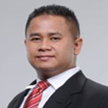Timor-Leste
Corporate - Deductions
Last reviewed - 29 July 2025The taxable income of residents and non-residents who have a PE in Timor-Leste shall be determined on the basis of gross income reduced by:
- expenditure and losses incurred from the alienation of assets or the discharge of debt in the conduct of a taxable business activity
- expenditure incurred in deriving any other amounts included in gross income
- any loss on disposal of an asset other than assets held on personal account
- contributions to an approved pension fund, and
- bad and doubtful debts (subject to various tests - see Bad debts below).
Depreciation and amortisation
'Depreciable assets' include any tangible movable property with a useful life exceeding one year that is wholly or partly used for taxable business activities. 'Intangible assets' include property, other than tangible movable property or immovable property, with a useful life exceeding one year that is used for taxable business activities.
There are provisions for election of either straight-line or double-declining methods, the pooling of assets, and de minimis exceptions. However, the rate of tax depreciation/amortisation (for non-petroleum operations) is set at 100%, meaning that taxpayers are, in effect, entitled to a full and up-front deduction. In circumstances where the asset is only partly used for the conduct of taxable business activities, the deduction is reduced by the proportion of its non-taxable business use.
Goodwill
There are no specific provisions dealing with the treatment of goodwill. We expect that the treatment should follow that under IFRS.
Start-up expenses
There are no specific provisions dealing with the treatment of start-up expenses. However, assuming that the start-up expense is incurred to derive income, we expect that start-up expense should be deductible.
Interest expenses
Interest expenditure is not deductible unless incurred by a financial institution.
Bad debts
Bad debts are not deductible without passing all of the following tests:
- The debt was previously included in taxable income.
- The debt was written off in the accounts during the relevant tax year.
- There are reasonable grounds for believing that the debt will not be recovered.
The above tests do not apply to banks, which are entitled to deduct provisions for doubtful debt where determined in accordance with the prudential requirements prescribed by instruction of the Banking and Payments Authority.
Charitable contributions
Donations are not deductible if the donations are exempt from income tax in the hands of the recipient.
Fines and penalties
Penalties for violation of law and regulation are not deductible.
Taxes
Timor-Leste or foreign income tax is not deductible.
Deductions not allowed or conditional deductions
The following expenses are also not deductible to a resident or non-resident with a PE in Timor-Leste:
- The distribution of profits in whatever name or form.
- Expenses incurred for the personal benefit of a taxpayer, a taxpayer’s dependents, shareholders, partners, or members.
- Reserves, other than as provided for under the TDA.
- Excessive compensation paid by a legal person to a member of the legal person, or paid between associates.
- Salaries paid to a partner in a partnership.
- A bribe, or any similar payment.
- Expenditure or losses incurred to the extent recoverable under an insurance policy or a contract of indemnities.
Net operating losses
Losses from previous years may be carried forward indefinitely. However, the carried forward loss from the disposal of assets may only be utilised against gains arising from the disposal of assets. Foreign-sourced losses may only be offset against foreign-sourced income of that particular country.
The carryback of losses is not allowed.
Payments to foreign affiliates
Excessive payments or compensation to ‘members of a legal person’ or payments between associates for work performed should not be deductible. The TDA, however, does not elaborate on the meaning of ‘excessive’.



